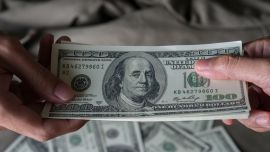After 20 years between Hugo Chávez and Nicolás Maduro and with a track record of going to the vote 19 times between regional and general elections and referenda since 1998, when Chávez won for the first time, tomorrow’s presidential election in Venezuela is not just another in a long series.
Long before May 20, tomorrow’s vote was already dismissed as fraudulent, a sham, a “so-called election” (US Vice-President Mike Pence dixit), and null and void. Such was the verdict of the Lima Group countries (i.e. the entire Latin American region minus Bolivia, Ecuador, Uruguay and Bolivarian allies in the Caribbean), along with the United States, Canada, France and Spain.
Called a year ahead of schedule by the questioned and illegal General Constituent Assembly with the urgent aim of giving the current president another term, this vote lacks any guarantees of transparency with various political parties disqualified and with the MUD opposition coalition (with most of its leaders in exile) ordering abstention. Only a handful of candidates are competing against a rerun of Maduro.
Henri Falcón, a fanatical supporter of Chávez until 2008 when he switched to MUD, only to “rebel” against that coalition, is running on one of the opposition tickets and some opinion polls even place him ahead in voting intentions. The other alternative, equally feeble, is the Protestant pastor Javier Bertucci, who evangelically proclaims a Utopian redemption from Maduro’s dictatorship from the campaign trail. Scant hopes that tomorrow’s electoral pantomine will be other than a built-in fraud – the only result can be fatigue and apathy descending on Venezuela.
Few will be going voluntarily to the polling-booths. Coercion dictates the vote: and not only fear of the military régime and police state under Maduro but also the despair of hunger will be dragging voters to ballot-boxes, armed with their Carnet de la Patria IDs, which they need to have stamped at voting centres so that these Venezuelans can continue receiving the increasingly meagre food bags distributed by the government. Considering that the region and the world is fed up with populism, with a growing indifference to the new thugocracies mushrooming around, the contempt of agreements, pacts and treaties in every continent, whether Maduro wins by a little, a lot or a landslide hardly matters: He will be sticking around in any scenario without needing to request help from Russian hackers or Cambridge Analytica.
And while the result of this election will serve to feed some bombastic headlines and some tit-for-tat from some president of an important country, in Venezuela everything will continue plunging down the same path of decay and disintegration. Right in front of the impassive eyes of all of us.
But at the same time while the end of the dictatorship approaches in interminable slow motion, other factors are accelerating at Formula 1 speed. Like the war to take control of the last shreds of the PDVSA state oil company which is being waged by the military wing of the regime headed by Diosdado Cabello and the recently named Energy Minister Manuel Quevedo, an army officer.
With oil prices at US$ 80 per barrel, this war is all or nothing. But it’s not that simple. PDVSA’s oil production in the first quarter of this year slid to a 33-year low of 1.4 million barrels per day. In 1998, when Chávez was elected, the country´s output peaked at 3.5 million b/d. This is the result of two decades of merciless chavismo with little or no investment and mismanagement. Furthermore, just like the price of crude, the exodus of oil professionals is accelerating. In the last year almost 30,000 engineers, managers, lawyers and high-ranked professionals have quit their jobs, says Reuters.
Another issue is also raising the speedometer – a cascade of lawsuits against PDVSA over unpaid bonds. “ConocoPhillips recently won court orders giving it control over refining and storage assets owned by PDVSA in the Caribbean, a hub for exporting Venezuelan crude to Asia”, reported the Financial Times. The immediate enforcement of a US$2-billion arbitration award had PDVSA ordering tankers in the Caribbean to return to national waters. It also suspended oil storage at Caribbean facilities to avoid seizure. Analysts anticipate that “related backlogs at ports in Venezuela could result in bigger falls in foreign sales”.
And what about Uncle Sam´s reaction? (if not in the political, at least in this sense a reaction is expected). Energy experts say that “although the Trump administration has already imposed far-reaching financial sanctions against Venezuela”, additional sanctions on exports would mean a risk of much higher oil prices. A further spike in crude oil prices is already foreseen with Iran’s foreign sales set to drop after the Trump administration’s withdrawal from the nuclear deal and, consequently, new sanctions imposed. A drop in both Venezuelan and Iranian supplies at the same time could rocket the price of crude to US$ 100 a barrel by the end of the year, analysts in London have told the FT.
A hike would taste like ambrosia to Nicolas Maduro and his gang, giving them further clout and breathing-space for Venezuela’s uncontested regime. But another election is at stake this year: the US mid-term elections. It hardly needs saying that in contrast to Maduro, Trump’s continuation in power depends on putting the brakes on oil prices. Those in the know say that he would not hesitate to tap the USA’s strategic petroleum reserves to tame oil prices. To the detriment of what’s left of Venezuela.




















Comments